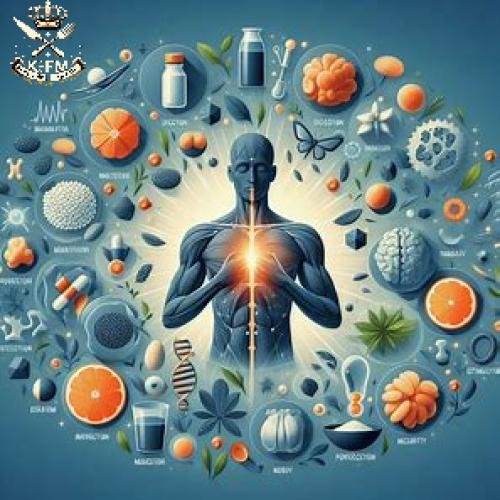Regular exercise is essential for maintaining both physical and mental health, as it helps prevent various diseases such as heart disease, strokes, diabetes, and depression. However, some people may experience muscle pain after intense exercise due to muscle fiber damage. To overcome this pain and ensure continued exercise, there are effective ways to reduce muscle soreness, such as proper nutrition, stretching, and using appropriate recovery techniques. It is also important for individuals with health issues or the elderly to seek medical advice before engaging in strenuous exercise.

Get a Massage
Massage is not only a great way to relax, but it’s also an effective method to reduce muscle soreness after exercise. Research has shown that massage can help improve blood circulation to the muscles, aiding the recovery process.
When massaging the muscles, blood flow is stimulated, and oxygen and nutrients are delivered to the damaged tissues, helping to reduce swelling and inflammation. Additionally, massage can relieve muscle tension and improve flexibility, making the body less prone to future injuries.
Necessary Nutrition:
To increase the effectiveness of the massage, you can consume foods rich in antioxidants and vitamins. Fruits like blueberries and strawberries are rich in antioxidants, which help reduce inflammation. Eating foods high in Vitamin C, such as oranges and kiwis, enhances collagen production and contributes to tissue repair.
Practice Some Yoga
Yoga is not just a physical exercise; it’s a life philosophy that combines physical movements, deep breathing, and meditation. Studies have shown that yoga can help reduce muscle soreness due to its stretching and flexibility techniques.
Yoga helps improve flexibility and increases the range of motion in the joints, which aids in reducing tension and muscle stiffness. Additionally, deep breathing and mental focus during yoga can help improve stress response and reduce pain perception.
Necessary Nutrition:
To enhance the benefits of yoga, it’s recommended to consume foods rich in magnesium, such as spinach, nuts, and seeds. Magnesium plays a crucial role in relaxing muscles and preventing cramps. Drinking herbal teas like chamomile can also help calm the body and mind.
Take a L-Carnitine Supplement
L-Carnitine is a compound that plays an important role in energy production within the body. It is known for its ability to reduce muscle soreness after exercise. Research suggests that L-Carnitine can help minimize muscle damage caused by intense exercise.
L-Carnitine works by improving blood flow to the damaged muscles, which enhances the recovery process and reduces inflammation. It can also help decrease the buildup of lactic acid in the muscles, contributing to less pain and fatigue.

- Epsom Salt Baths: The minerals in Epsom salt baths help reduce inflammation and relieve muscle tension.
- Foam Rollers: These tools help improve muscle flexibility and reduce tension points.
Necessary Nutrition:
L-carnitine can be obtained through consuming animal proteins such as red meats, chicken, and fish, which are essential for repairing and rebuilding damaged muscle tissues.
- Carbohydrates provide the necessary energy for exercise and promote recovery. Good sources include brown rice, pasta, whole grains, fruits, and vegetables.
- Vitamins and minerals play a crucial role in various bodily functions, including wound healing and energy production. Sources include fruits, vegetables, whole grains, nuts, and seeds.
Additionally, L-carnitine supplements are available in pharmacies, but it's important to consult a doctor before taking any supplements to ensure they are appropriate for your health condition.
Additional Tips to Reduce Muscle Soreness After Exercise
In addition to the methods mentioned above, several other tips can help reduce muscle soreness after exercise:
- Proper Hydration: Drinking enough water before, during, and after exercise can help reduce swelling and inflammation in the muscles. Electrolyte-rich drinks like coconut water can be beneficial for replenishing lost minerals.
- Rest and Quality Sleep: Getting enough sleep and rest can enhance the recovery process and reduce muscle soreness. Having a light snack containing carbohydrates and protein before bed can aid recovery.
- Balanced Nutrition: Eating a balanced meal with protein and carbohydrates after exercise can help replenish energy stores in the muscles and speed up recovery. Foods like eggs, quinoa, and brown rice are good options.
- Cold and Heat Therapy: Applying ice to affected muscles can help reduce swelling and inflammation, while heat therapy can improve blood flow and ease muscle tension.
Conclusion: Reducing muscle soreness after exercise can be challenging, but by using the methods mentioned above and combining them with proper nutrition, you can alleviate pain and enhance recovery. Remember, regular exercise and taking care of your body will improve your overall health and make working out an enjoyable part of your daily routine.




















